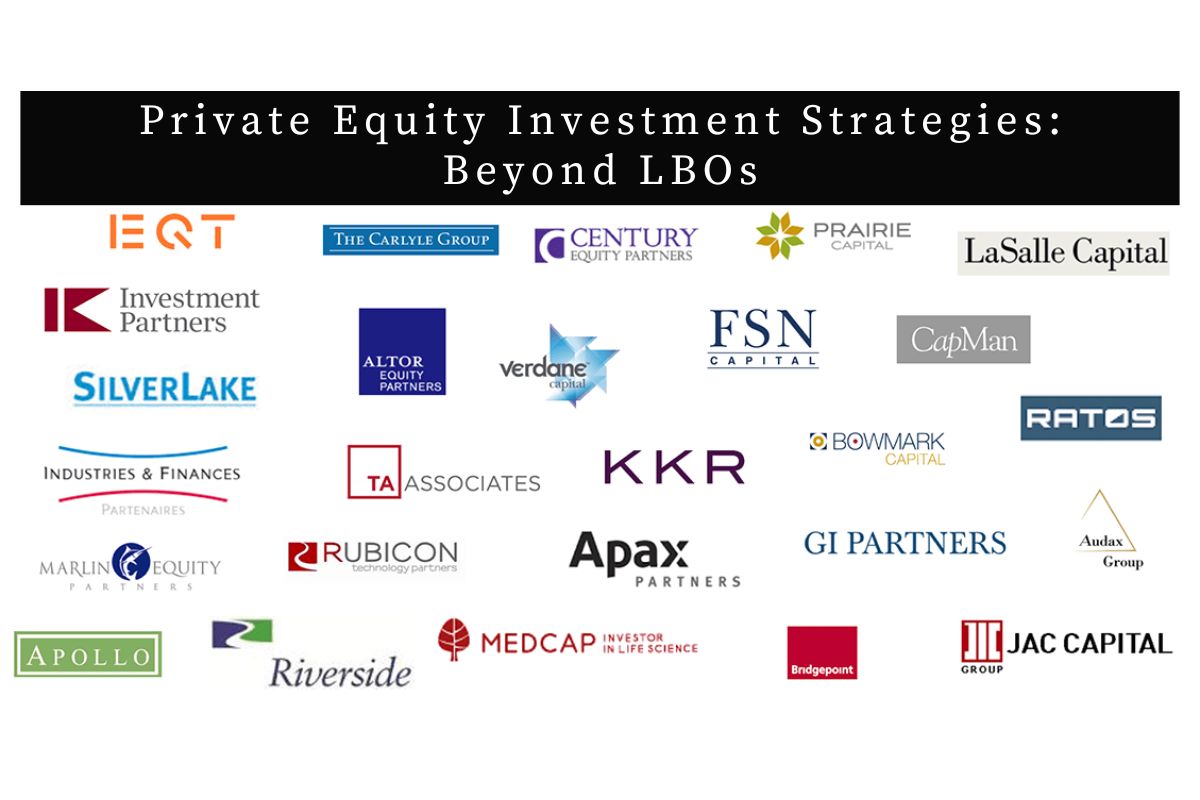Private equity firms have long been known for their use of leverage buyouts (LBOs) and buyouts to take a controlling interest in businesses. However, there are many other investment strategies employed by private equity firms that are often overlooked. In this article, we will explore some of these strategies in detail.
Table of Contents
ToggleActivist Investing
Activist investing involves purchasing a large block of publicly traded equity and buying up more stake in the business over time to gain control over the board. The aim is to influence the board to take more profit-driven activities, thus adding value to the business. This is one way private equity firms take control of a business.
Buying Spin-Offs and Carve-Outs
Spin-offs and carve-outs refer to smaller entities or divisions that were once part of larger conglomerates but are not core to their business. These entities often get neglected and are not given the time or resources to grow. Private equity firms buy them from the larger companies, usually when they are in financial trouble and need to raise cash. This provides an opportunity for private equity firms to add value by improving the performance of these entities and selling them later at a profit.
Investing in Distressed Companies
Private equity firms step in to buy equity and debt of companies in financial trouble, either before or during bankruptcy proceedings. The equity and debt of these companies are often traded for pennies on the dollar, providing an opportunity for private equity firms to purchase them at a fraction of their normal worth. The goal is to help the company emerge from bankruptcy and become profitable again.
Seed Funding
Seed funding is a type of investment where private equity firms provide capital to entrepreneurs to test an idea or develop a minimum viable product (MVP). This type of funding is usually provided by venture capital firms, but private equity firms have started to step in as well. Private equity firms can provide this capital faster than venture capital firms, making them an attractive option for entrepreneurs.
Growth Equity
Growth equity is a type of investment where private equity firms provide additional funding to companies that are about to grow, but need more capital to develop and expand. This type of investment is usually sought after by companies in the growth phase that are seeking Series B or C funding. Private equity firms have stepped into this space to provide growth equity to entrepreneurs.
Growth Buyouts
Growth buyouts involve purchasing a controlling stake in a business with the aim of helping it grow. This type of investment was once the domain of venture capital firms, but private equity firms have now stepped in as well.
Conclusion
In conclusion, private equity firms employ a range of investment strategies beyond LBOs and buyouts. These strategies include activist investing, buying spin-offs and carve-outs, investing in distressed companies, seed funding, growth equity, and growth buyouts. Private equity firms have become a major force in the investment world, and their diverse range of strategies makes them an attractive option for investors looking for ways to diversify their portfolios.
Further Reading and Sources:
Berkshire Hathaway Letters to Shareholders 1965-2021
Additional Resources
To keep learning and advancing your career, we highly recommend these additional resources:
7 Financial Models Used by Investment Bankers












